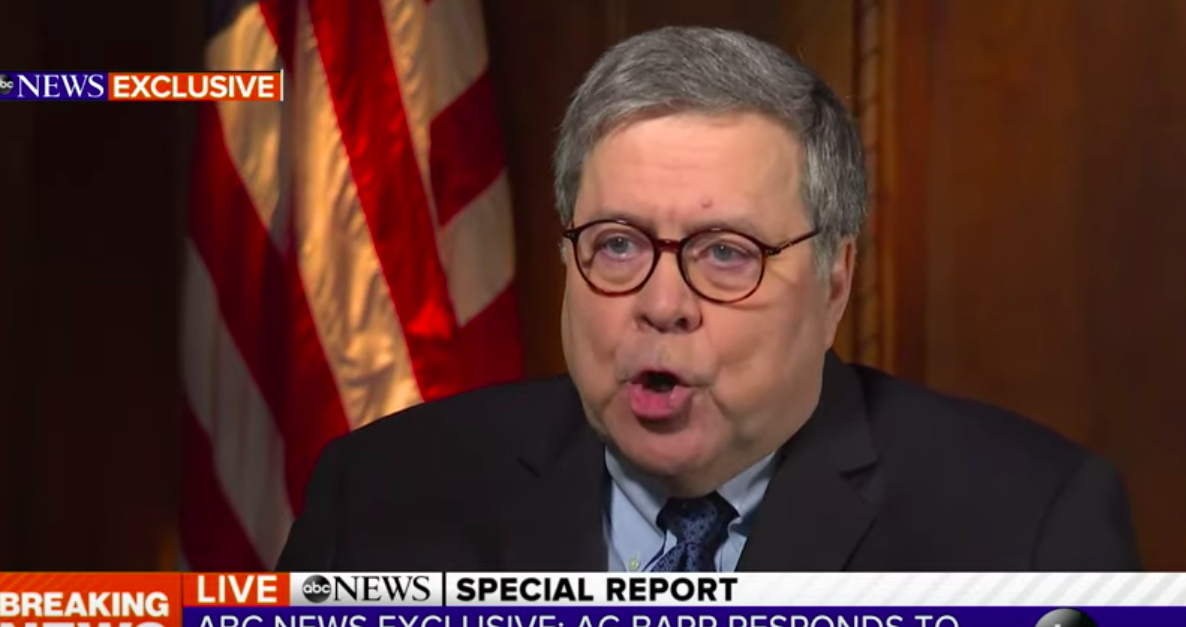
Attorney General Bill Barr isn’t too high on marijuana as a business, so he improperly targeted cannabis company mergers with antitrust investigations, a DOJ whistleblower alleges.
Current DOJ employee John Elias said in a prepared statement, which will be delivered before the House Judiciary Committee on Wednesday, that Barr weaponized the power of the DOJ antirust division to persecute businesses he doesn’t personally like. The statement from Elias, a “career official in the Justice Department’s antitrust division,” comes not long after we got our first look at former Mueller prosecutor Aaron Zelinsky’s revelations on DOJ political interference in the Roger Stone case.
Elias said that he was concerned enough about what he saw that he reported it to DOJ Inspector General Michael Horowitz.
“I am a career employee at the Department of Justice. Based on what I have seen, and what my colleagues saw and described to me, I was concerned enough to report certain antitrust investigations launched under Attorney General Barr to the Department of Justice Inspector General,” Elias began. “I asked him to investigate whether these matters constituted an abuse of authority, a gross waste of funds, and gross mismanagement. I am appearing here today under subpoena to describe these matters to the Committee. Although I am a current DOJ attorney, my testimony is personal and does not represent the views of the Department.”
Elias said that he has “undertaken whistleblower activity, and am here today, because I recognize the imperative for law enforcers to operate even-handedly and in good faith.” According to Elias, Barr did not do so in at least two cases:
First, at the direction of Attorney General Barr, the Antitrust Division launched ten full-scale reviews of merger activity taking place in the marijuana, or cannabis, industry. These mergers involve companies with low market shares in a fragmented industry; they do not meet established criteria for antitrust investigations. Second, I will detail an investigation – initiated the day after tweets by President Trump – of an arrangement between the State of California and four automakers on fuel emissions.
Elias claimed that Barr targeted marijuana companies MedMen and PharmaCann with antirust probes—not to undertake “bona fide antitrust investigations,” but because Barr just doesn’t like the nature of the budding businesses:
However, on March 5, 2019, Attorney General Barr called the Antitrust Division leadership to his officer for a meeting entitled “Marijuana Industry Merger Review.” As a Microsoft Outlook delegate of one of the attendees, I was copied on the calendar appointment but did not attend the meeting. The Antitrust Division political leadership asked staff to prepare a short briefing memo for Attorney General Barr before the meeting. In that memo, staff emphasized in underlined text that in its preliminary view, the transaction was unlikely to raise any significant competitive concerns that would justify issuance of Second Requests. Rejecting the analysis of career staff, Attorney General Barr ordered the Antitrust Division to issue Second Request subpoenas. The rationale for doing so centered not on an antitrust analysis, but because he did not like the nature of their underlying business.
“Second Request investigations are infrequent because they require companies to respond to burdensome administrative subpoenas – often 15 pages or longer – and produce hundreds of thousands or millions of documents,” Elias noted.
[Image via ABC News screengrab]